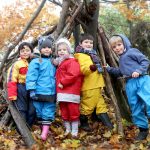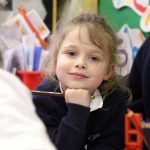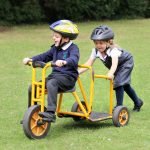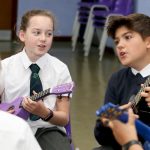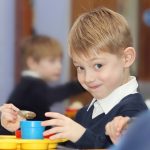Class 6 Spring Term Newsletter
Welcome back. Happy New Year!
I hope you have had a good Christmas break. Mrs Martin and I would like to thank you for all the very generous Christmas gifts we received at the end of last term. Thank you.
Curriculum
English: we will be looking at a variety of narrative structures and techniques including graphic novels, short stories and the use of flashback as well as film narrative and extended stories, non- fiction work will include instruction and explanation texts, information texts, writing to persuade and report writing, we will be reading different styles of poetry to recognise, understand and discuss a range of features and their effects
Spelling, grammar, punctuation, handwriting, guided reading, reading comprehension, vocabulary expansion and improving self- editing skills are ongoing.
Maths: improving mental calculations, using knowledge of place value, using knowledge of the order of operations ,to multiply and divide any number, including decimals, by 10, 100 or 1000 and understand the effect, multiplication and division involving decimals, algebra, patterns and sequences, handling data and interpreting information, contextual problem solving, relationships and calculations, standard written methods for all 4 calculations including for decimals and fractions, recognise the equivalence between the decimal and fractions, problems involving fractions and percentages, use of ratio and proportion to solve simple problems.
Science: The circulatory system: identify and name basic parts and organs of the human circulatory system, and explain functions of the heart, blood vessels and blood. Recognise the impact of diet, exercise, drugs and lifestyle on the way the body functions.
Topic: History : Stone Age to Iron Age – The Stone Age the children will develop their archaeological skills and vocabulary, create Ice Age art, as well as research Stone Age homes. To understand the Bronze Age, the children will find out about tool making and explore the religious importance of Stonehenge. They will find out about life in an Iron Age village, explore and understand Hill Forts.
Geography: Coasts – Describe and understand key aspects of physical geography. We will study coasts and the effects of erosion on the coastline. Also, we will use atlases to identify places and features on the coast, in the UK.
Art: Year 6: Landscapes and seascapes by Hockney and Monet, create sketch books to record observations and use them to review and revisit ideas.
DT: Food – Celebrating culture and seasonality. We will use first hand and secondary sources to carry out relevant research into existing products to include personal/cultural preferences, ensuring a healthy diet, meeting dietary needs and the availability of locally sourced/seasonal/organic ingredients. Look at what ingredients are sourced locally/in the UK/from overseas? What are the key ingredients needed to make a particular product? How have ingredients been processed? What is the nutritional value of a product? We will carry out evaluations of a variety of existing food products and ingredients. Look at what is the impact of added ingredients/finishes/shapes on the finished product? Finally, research key chefs and how they have promoted seasonality, local produce and healthy eating.
French: quelle heure est-il? ma journée et les saisons!
Computing: First half term we will be using Publisher to create reports on Stone Age settlements and the second half term we will be developing our understanding of online safety and developing our social media skills.
P.E: First half term: Indoor Athletics and Tag Rugby, second half term: Dance and Basketball. Year 6 will be wearing school uniform and changing for PE, therefore PE kits are to be kept in school Monday to Friday (a plastic bag for muddy trainers would be helpful). PE this half term will be on Monday and Tuesday afternoon.
RE: We will be looking at different areas of Christianity and Humanist beliefs considering the questions in Philosophy – What does it mean to be human? Is being happy the greatest purpose in life? In Theology we will discuss aspects of thinking on Creation or Science?
P.S.H.E. : We start with the unit Belonging to a Community – studying what prejudice means, to differentiate between prejudice and discrimination, how to recognise acts of discrimination, strategies to safely respond to and challenge discrimination, how to recognise stereotypes in different contexts and the influence they have on attitudes and understanding of different groups and how stereotypes are perpetuated and how to challenge this. Then we move on to the unit Media Literacy and Digital Resilience – about the benefits of safe internet use e.g. learning, connecting and communicating, how and why images online might be manipulated, altered, or faked, how to recognise when images might have been altered, why people choose to communicate through social media and some of the risks and challenges of doing so, that social media sites have age restrictions and regulations for use, about sharing things online, including rules and laws relating to this and how to recognise what is appropriate to share online. Then finally the unit: Money and Work – looking at influences and attitudes to money; money and financial risks.
Music : A New Year Carol and You’ve got a Friend : We will listen and appraise different styles of music and perform and review our own short pieces.
As always if you do have any questions or concerns at any time, please do phone or email the office and I will return your call or email.
Happy 2023!
Annabelle Hall










